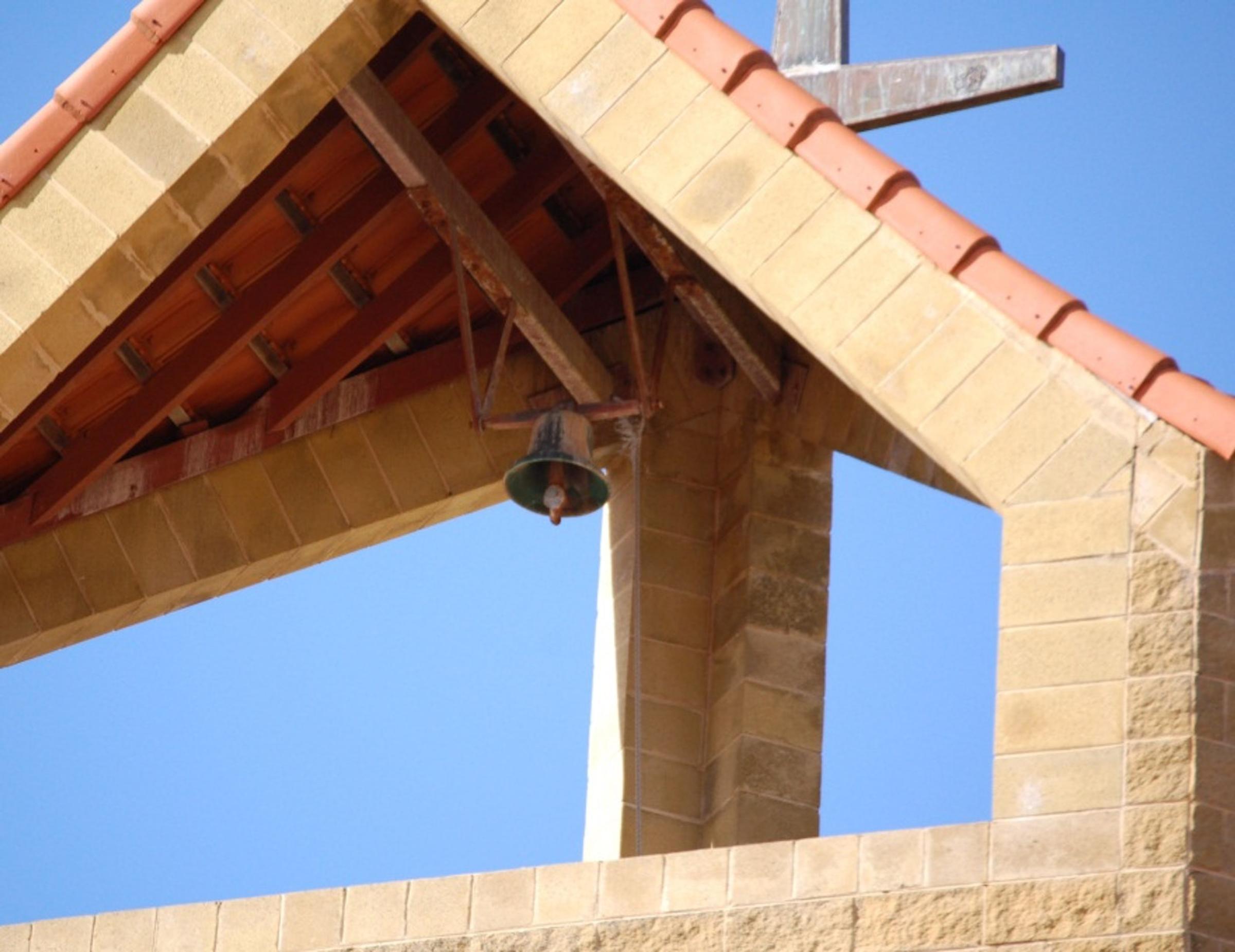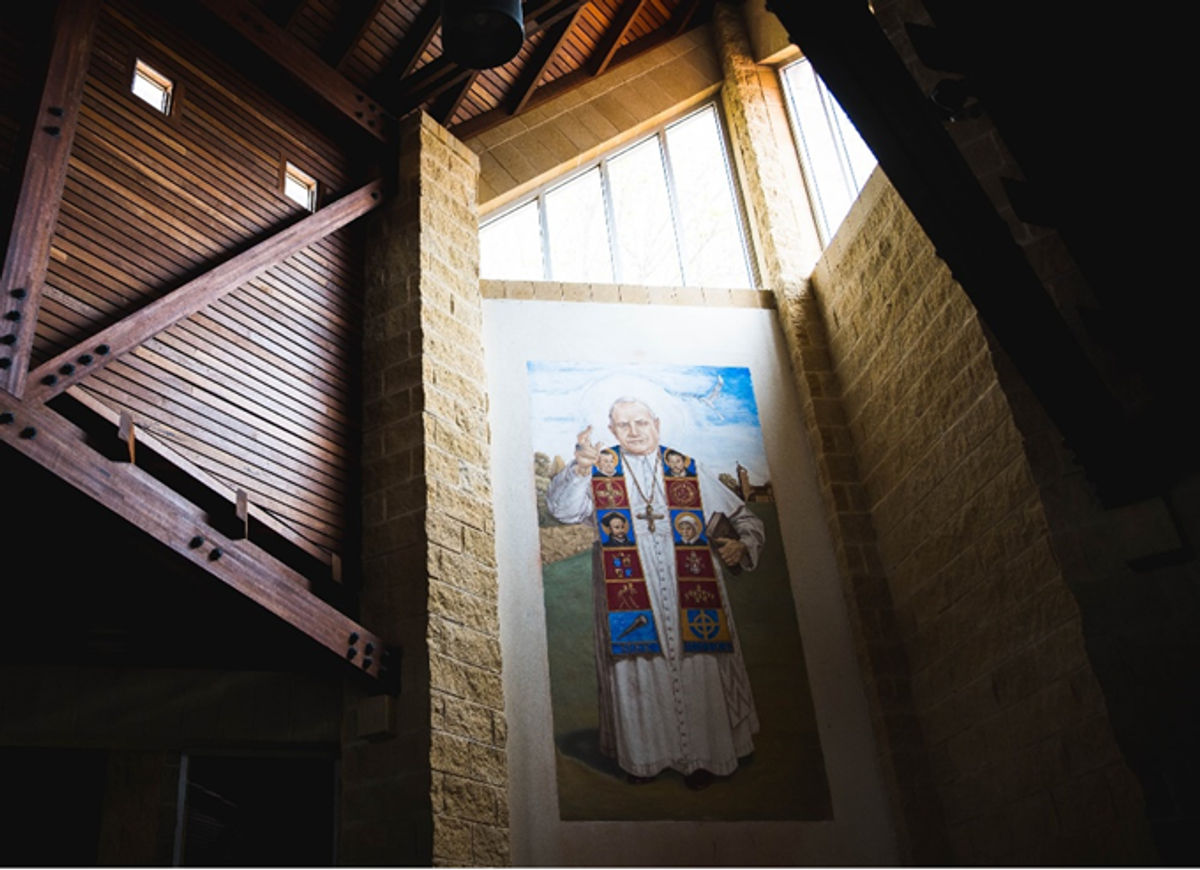Faith and Mission

Today is the Feast Day of our patron, Pope John XXIII. Known affectionately as 'Good Pope John,' he remains a beacon of humility, justice, and openness—a model for all of us who strive to live out the values of our faith in our daily lives.
Pope John XXIII, born Angelo Giuseppe Roncalli, became known for his humility, humour, compassion, and commitment to social justice. His calling to open the Church to the modern world culminated in the convening of the Second Vatican Council, which sought to foster dialogue and renewal within the Church and promote a spirit of ecumenism and understanding. His actions and writings inspire us to see the face of God in every person and to be bridge-builders in a world that desperately needs healing and unity.
His Feast Day provides us with an opportunity to reflect on his life and teachings. How can we, in our own ways, be instruments of peace and justice in our school, families, and communities? How can we engage in meaningful dialogue with those around us and work toward greater understanding and unity?
May Pope John XXIII’s example continue to inspire us to be people of justice, humility, and love.
Happy Feast Day!
Community Mass
Not only is today the feast of Pope Saint John XXIII, it is also the 62nd anniversary of the opening of the Second Vatican Ecumenical Council. Thank you to students in Year 11 for their preparation of today’s liturgy. Thanks to Jesuit, Fr Andrew Hamilton, who has shared with us his reflection for the feast of our College namesake – see below.
Next Friday, Community Mass will be prepared by students in Year 10. Year 10 families – and all family, friends and alumni of the College – are welcome in the Chapel for the liturgy and in the Circle of Friends Café afterwards.
Community Mass summary
- College Chapel
- Fridays in term time
- Starts: 8:00am and concludes 8:30am.
Pope Saint John XXIII
Angelo Roncalli, who became St John XXIII, was a simple man. Simple in the sense of being grounded in the soil and not in the cloud. Simple, too, in not knowing many things but in knowing a few things deeply. Simple also in his tastes and his friends. And simple in being faithful to the Gospel. But not simple in being naïve or unworldly. His wisdom did not come from books but from living close to the earth.
As the fourth of twelve children of a share farmer, he knew the world, the need to stand up for himself, to distinguish between what was essential and what did not matter so much. He learned how to negotiate, and how to tell the difference between the superficial and the genuine, the fair and the unfair. After he was ordained a priest in 1904, he was fortunate enough to be made secretary to a Bishop with a passionate commitment to social justice. His dying words in 1914 were, ‘Angelo, pray for peace’.
After serving in the army as a stretcher bearer during the war, he was summoned by the Pope to Rome, was later appointed as Papal delegate to Bulgaria, and was ordained a Bishop. In this role he related easily to Muslims. In 1935 he was also made Apostolic Delegate to Turkey and Greece where again he built good relationships with the Orthodox and Turkish majority. This was invaluable during the Second World War. It enabled him to work with the authorities to save the lives of many Jews at risk under the Bulgarian alliance with Germany. After the War he was given another delicate task in healing some tensions between Catholics in France, and was made Patriarch of Venice in 1953.
After Pope Pius XII died, the other Cardinals elected him Pope in 1958, apparently as an ageing choice to warm the seat for the next pope. Any expectation of a do-nothing Pope was soon disappointed. He reached out to Communist regimes and to other Churches, and in his conduct he chose simplicity and pastoral outreach over traditional customs. In this he anticipated the behaviour of Pope Francis in visiting hospitals and prisons.
Perhaps his most significant gift to the Church was his calling the Second Vatican Council in 1959 and ensuring that it did not focus on defending Church teaching or condemning the modern world, but on reaching out to people pastorally and engaging with the goodness and the failures of modernity.
Pope John XXIII never lost his common touch. Nor did he take himself too seriously. The stories told about him all display his common touch. Shortly after his election of Pope he passed a woman in the street. She gasped and exclaimed how fat he was. The Pope replied, ‘Madam, Papal elections aren’t beauty contests!’
When a writer later asked him if he could write a few words to introduce his book, the Pope asked him why he wanted them. The honest and embarrassed writer answered that they would help sell his book. The Pope smiled, did what the writer asked, but said that if he really wanted the book to sell, the Pope could have it put on the Index of forbidden books!
Such stories, however, could conceal the depth of his inner life. He was devout and prayerful, and kept a spiritual journal from his youth. Selections from this and from his letters were published shortly after his death in Journal of a Soul. The book reveals his growth as a person through his pastoral experience and living with the uncertainties and struggles inherent in meeting difficult situations. His boldness as Pope was the fruit of spiritual depth, not of nonchalance.
© Andrew Hamilton
Newly elected Pope in 1959, Roncalli wrote in his journal:
The whole world is my family. This sense of belonging to everyone must give character and vigour to my mind, my heart and my actions. This vision, this feeling of belonging to the whole world, will give a new impulse to my constant daily prayer.
Journal of a Soul, p. 299.

